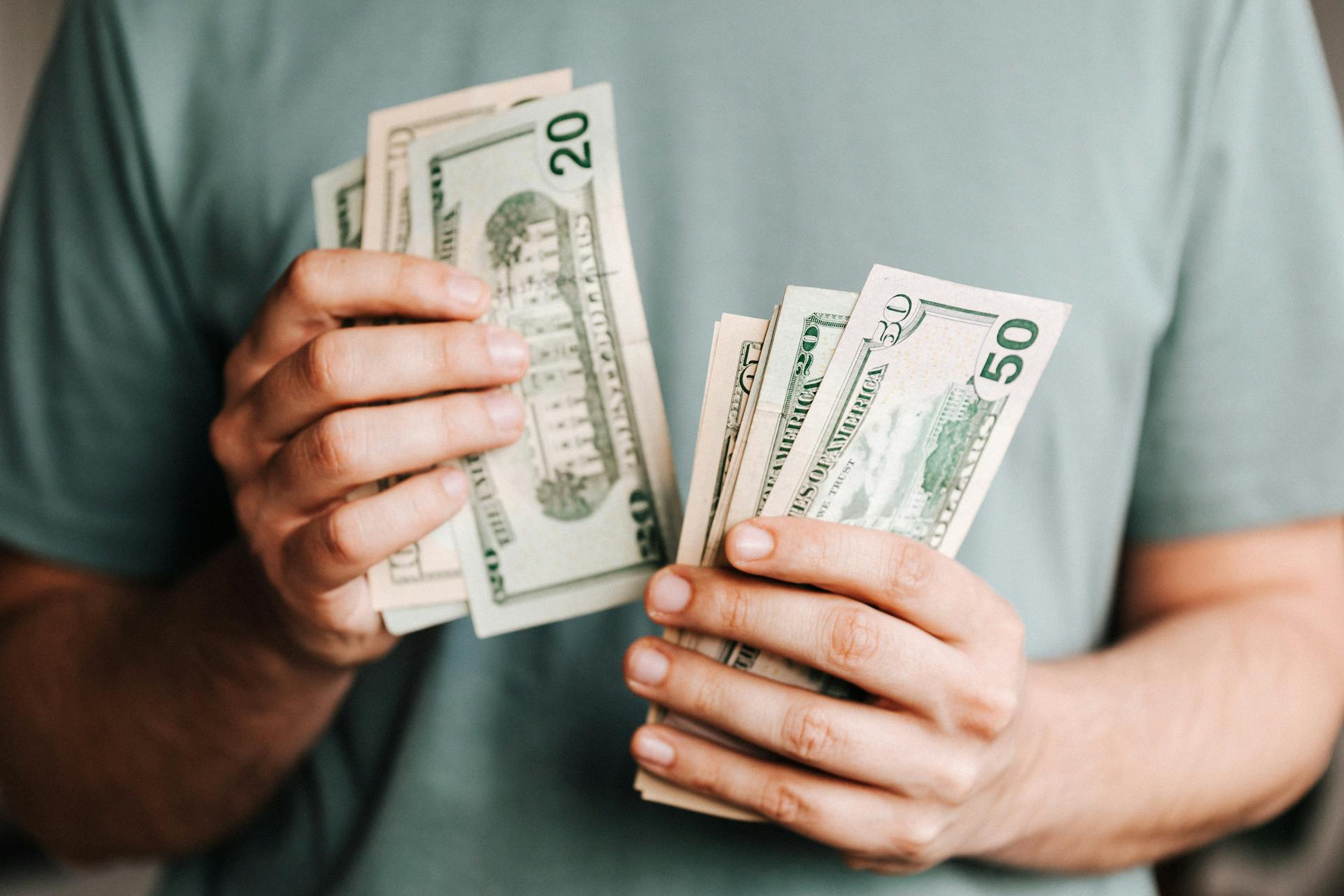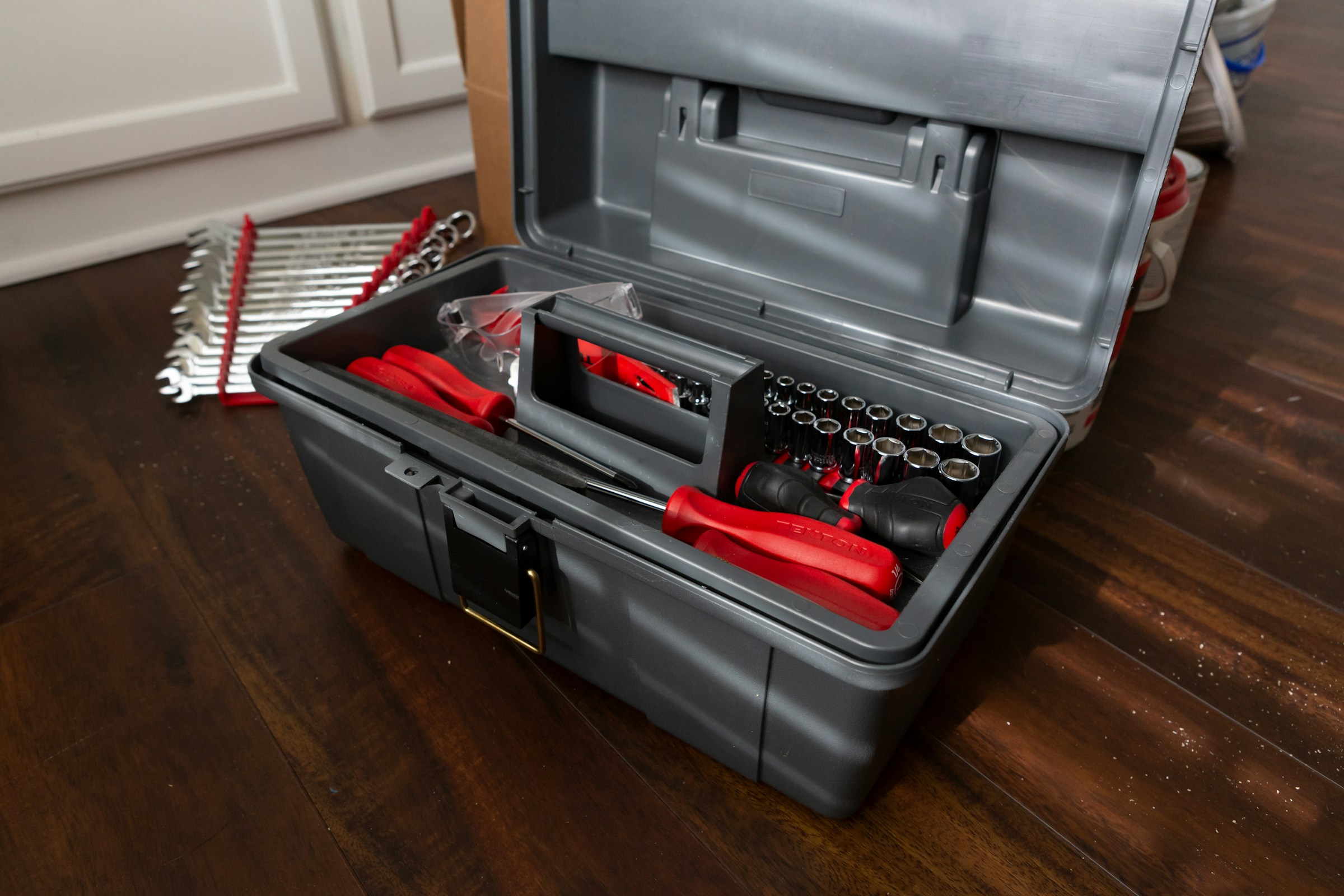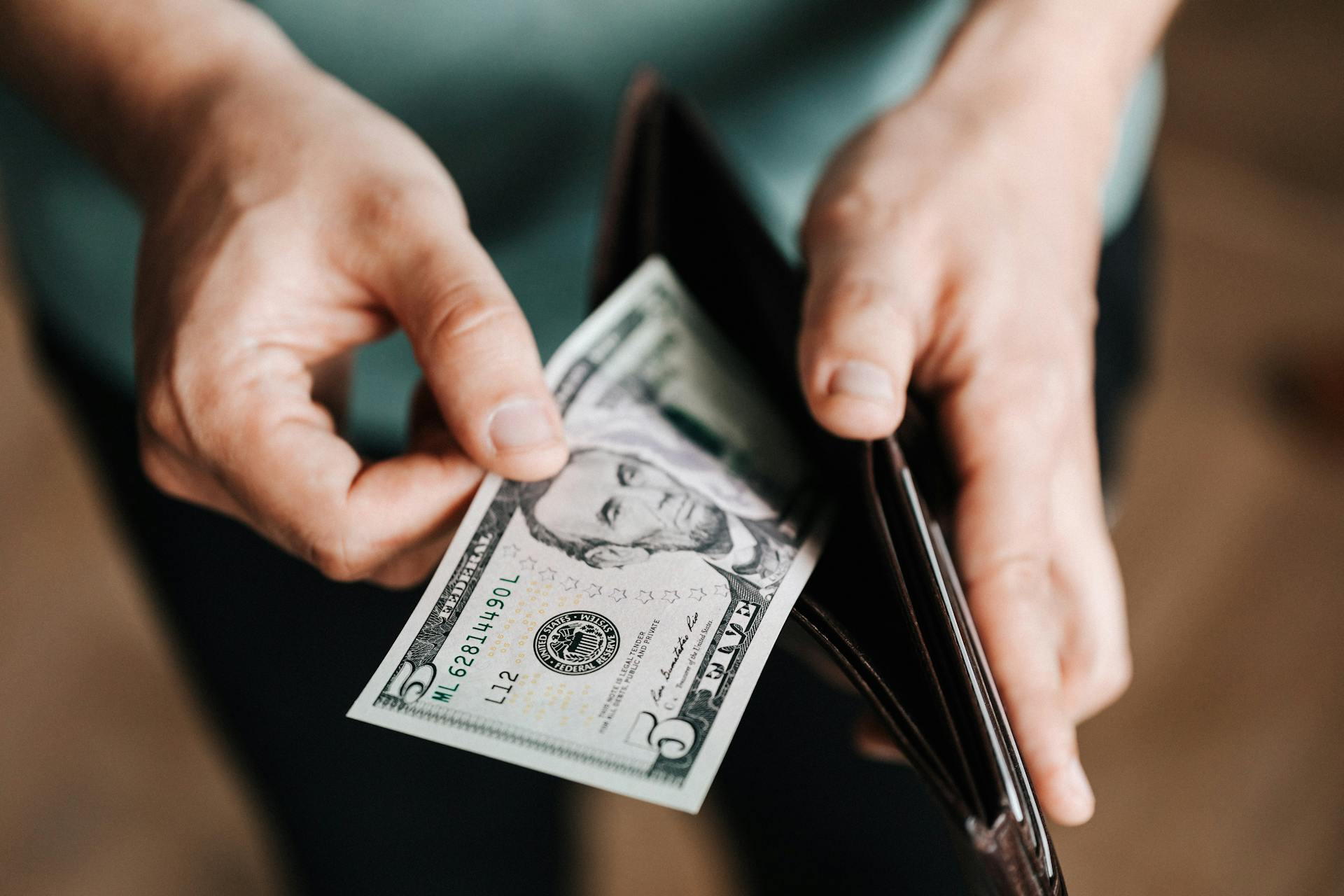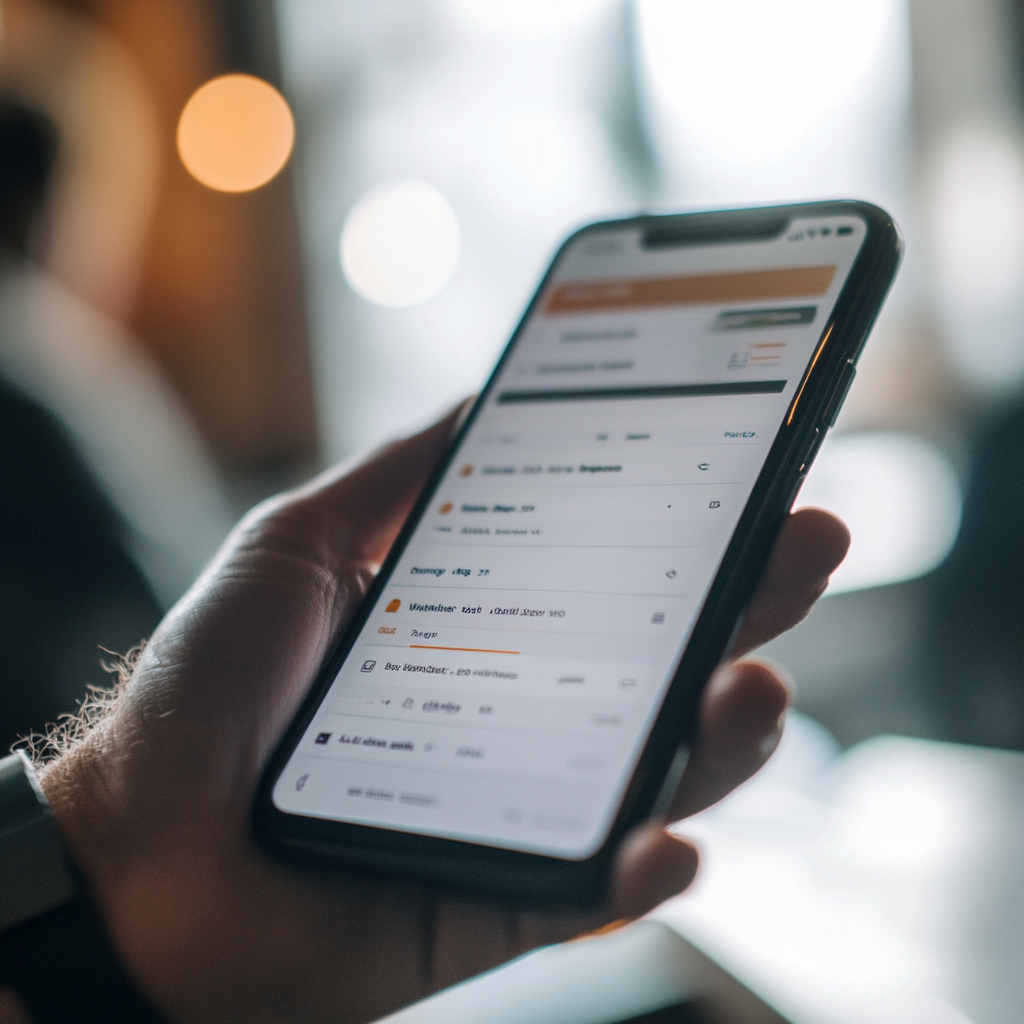
14 Easy Financial Hacks That Will Save You a Tidy Sum
Life is full of little expenses that can add up quickly, but with these 14 clever financial hacks, you can start saving more and spending less without sacrificing your quality of life.
Financial freedom starts with small, consistent changes. Everyday expenses, impulse buys, and overlooked costs can quietly drain your budget. But by incorporating a few smart strategies into your routine, you can start saving more and spending less without feeling restricted.
These hacks are meant to help you regain control over your money, allowing you to build a healthier financial future with simple, effective habits that fit seamlessly into your life.

A closeup of a person counting dollar banknotes | Source: Pexels
1. Do the Math on Value Packs
When shopping, don't assume that buying in bulk is always cheaper. It's essential to compare the price per ounce or unit between value packs and single items. For instance, you might find that a value pack of deodorant is priced at $1.20 per ounce, while a single item is only $1 per ounce.
By doing this quick calculation, you can avoid overpaying. This habit ensures you get the best value for your money, especially with everyday items like groceries.

A man holding two cups of noodles in a grocery store | Source: Pexels
2. Stick to Water When Dining Out
Ordering drinks at restaurants, whether soda, juice, or alcohol, can significantly increase your bill. By opting for water, not only do you make a healthier choice, but you also save money. Dining out twice a week and skipping the $3 soda can easily add up to over $300 saved.
The savings are even greater if you frequently dine at places with pricier drink options. This simple switch can help you cut unnecessary costs without sacrificing the enjoyment of eating out.

A glass of water with lemon slices on a table | Source: Pexels
3. Send Wedding Invitations to Billionaires
If you're planning a wedding, consider sending invitations to billionaires whose addresses you can find. There's a chance their assistants will send a gift without verifying who you are. This quirky hack, inspired by a random meme, might just land you some unexpected and lavish gifts.
While the success of this trick isn't guaranteed, it's a low-risk strategy with the potential for high rewards. At the very least, it adds an interesting twist to your wedding planning process and could lead to some amusing stories.

A closeup of a bride holding a wedding invitation | Source: Pexels
4. Leave Items in Your Online Cart
When shopping online, patience can be rewarding. Instead of buying immediately, leave items in your cart for a few days. Many websites track abandoned carts and might offer a discount to encourage you to complete the purchase.
One savvy shopper used this tactic to save $100 on a surround sound system, reducing the price from $450 to $350 simply by waiting a week. This hack works particularly well for expensive items, where even a small percentage off can translate into substantial savings.

A closeup of a person holding their bank card while shopping online | Source: Pexels
5. Practice the 72-Hour Rule
The 72-hour rule is a powerful tool to combat impulse buying. When you want something that isn't essential, instead of buying it immediately, add it to a list and wait 72 hours. Often, the desire fades, and you save money.
One person found that 80-90% of the time, they didn't purchase the item after waiting. By tracking these would-be purchases in a spreadsheet, they could easily see how much they saved over time. This method encourages mindful spending and reduces unnecessary clutter and expenses.

A wooden toy in between a jar of coins and an alarm clock | Source: Pexels
6. Buy Tools Instead of Paying for Repairs
If the cost of a repair equals the price of the tool needed to fix it, buy the tool and do it yourself. This approach saves money now and equips you for future repairs. One person repaired their convertible top by purchasing a $30 sewing awl, saving hundreds compared to professional repair costs.
They shared that even if they only use the tool once more, it's worth the investment. This hack not only saves money but also builds your DIY skills, making you more self-sufficient.

A toolbox | Source: Unsplash
7. Save Every $5 Bill
A simple but effective savings strategy is setting aside every $5 bill you receive. One person who started this method in January had nearly $3,000 saved by the end of the year. This approach turns saving into a fun challenge and helps you build a financial cushion without feeling the pinch.
Consistently setting aside small amounts of money can add up quickly, providing a significant sum for emergencies, a special purchase, or just a rainy day. It's an easy way to save without making drastic changes to your spending habits.

A closeup of a person pulling out a $5 bill from their wallet | Source: Pexels
8. Regularly Review Your Bank Statements
Monitoring your bank statements regularly helps you identify spending patterns and avoid unnecessary expenses. Small, frequent purchases like coffee or snacks can add up quickly, and reviewing your statements makes you more aware of where your money goes.
One person shared that this habit not only helped them set a budget but also stick to it. Additionally, keeping a close eye on your account helps you catch any unauthorized charges or mistakes, preventing bigger financial issues down the line. It's a simple yet powerful tool for better financial management.

A closeup of a person checking their mobile banking application | Source: Midjourney
9. Get a Library Card
A library card is more than just a pass to free books: it's a gateway to saving thousands on entertainment and education. Libraries offer access to movies, workshops, educational software, and more.
One person credits their library card with introducing them to some of their favorite books and saving them from spending on countless resources.
By utilizing your local library, you can significantly cut down on costs related to books, movies, and even learning new skills. It's an under-appreciated resource that can be a huge help in your financial toolkit.

A woman browsing her laptop while sitting in a library | Source: Pexels
10. Opt for Mid-Range Products
When shopping, it's tempting to choose the cheapest option to save money. However, the lowest-priced items are often of poor quality and may not last long, leading to more frequent replacements. Instead, opt for mid-range products, which usually offer the best value for money.
One person shared that they used to buy dollar store items but realized they were essentially throwing money away on products that didn't last. By choosing mid-range options, they found a balance between cost and quality, ultimately saving more in the long run.

A happy woman holding banknotes | Source: Pexels
11. Don't Buy Just Because You Have a Coupon
Coupons can be great for saving money, but they can also tempt you into buying things you don't need. One person became a sweet deals addict after graduation, purchasing items just because they were on sale. Eventually, they found their home cluttered with unused products.
Now, they prefer to pay full price for items they genuinely want rather than buying at a discount in the hopes they'll use it someday. This approach has proven to be more cost-effective and has helped reduce clutter in their life.

An Adidas coupon card | Source: Unsplash
12. Eat Before Grocery Shopping
Shopping on an empty stomach can lead to impulse buys that you don't need. When hungry, everything looks appealing, and you're more likely to stray from your shopping list. By eating before you go grocery shopping, you can make more rational choices and stick to your budget.
This simple hack not only prevents unnecessary spending but also helps you make healthier choices, as you're less likely to grab junk food or snacks in a moment of hunger. It's a small change that can lead to significant savings over time.

A woman pushing a shopping cart filled with fruits and vegetables | Source: Pexels
13. Save Like a Smoker
If you don't smoke but want to build a solid savings habit, try this: each week, transfer the equivalent cost of a week's worth of cigarettes into your savings account. The idea is that if people who earn less than you can afford to smoke, you can afford to save the same amount.
This strategy helps you build a substantial savings fund over time. One person found this approach effective, turning a potential negative habit into a positive financial practice. It's an easy way to save regularly without feeling the financial strain.

A woman holding a glass jar containing money | Source: Pexels
14. Pack Lunch and Carry Snacks
Bringing your own lunch and snacks can save you a lot of money compared to eating out every day. One person shared that they always carry a snack in their bag, which helps them avoid expensive and unhealthy impulse buys when hunger strikes.
Packing your lunch not only saves money but is often healthier, leading to long-term benefits for both your finances and your well-being. It's a simple habit that can make a big difference in your budget, especially if eating out is part of your daily routine.

Neatly packed lunchboxes filled with healthy food options | Source: Pexels
These 14 financial hacks may seem simple, but when applied consistently, they can have a significant impact on your savings. By making mindful decisions and small adjustments to your spending habits, you'll be able to save more and spend less without feeling deprived.
If you enjoyed this read, check out another compilation by clicking here: Life can throw some curveballs, but with these 19 surprising life hacks, you'll be ready for anything. From avoiding car lockouts to cooling down quickly in the heat, these tips might seem strange, but they truly are lifesavers.

The interior of a car with keys in the ignition switch | Source: Pexels
This work is inspired by real events and people, but it has been fictionalized for creative purposes. Names, characters, and details have been changed to protect privacy and enhance the narrative. Any resemblance to actual persons, living or dead, or actual events is purely coincidental and not intended by the author.
The author and publisher make no claims to the accuracy of events or the portrayal of characters and are not liable for any misinterpretation. This story is provided "as is," and any opinions expressed are those of the characters and do not reflect the views of the author or publisher.
